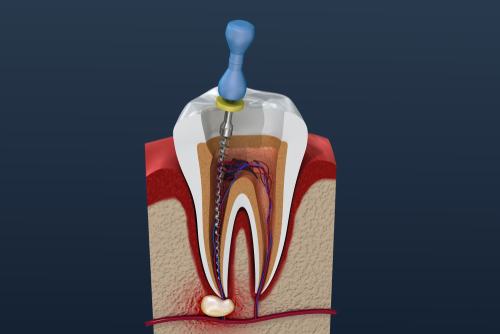
How Do You Know If You Need a Root Canal?
Some signs and symptoms are sensitivity to hot and cold, pain while chewing and biting, swollen gums and a cracked or chipped tooth. It’s crucial and urgent to get a professional dental examination to know for certain (e.g. perhaps it’s a sign of a serious infection or you want to save the tooth for sure).
How do you know if you need a root canal?
It requires a dentist to know that because the pain and sensitivity might be due to something else (e.g. a gum infection). Also, a root canal treatment is an internal problem where the pulp inside the tooth is inflamed or infected. The pulp, which is the soft tissue that facilitated the development of the tooth, can hurt if there’s infection and inflammation. Aside from the pain, this may result in an abscess (which can be serious and even life threatening).
It’s then important and urgent to have a dentist look at your teeth and gums even if it’s just a temporary pain that comes and goes. After all, it starts with minor symptoms and these slowly progress into something serious. Also, our tolerance for pain gets higher and we learn how to cope and ignore the lingering pain. This is a common oral problem which leads to the loss of tooth and expensive treatment and procedures.
How root canal treatment helps
It’s about removing the infected pulp and sealing the empty space. Although the pulp was essential for the earlier growth and development of the tooth, it’s now unnecessary once the tooth matures. That’s because the tooth now receives nourishment from the surrounding tissue. The pulp can now be safely removed.
In the first visit, the dentist carefully removes the pulp, thoroughly cleans the inside of the tooth and properly fills and seals the space temporarily. On the second visit the dentist will place a crown or other forms of restoration to make the tooth fully functional again. It will look and feel almost normal again and the tooth will be ready for that usual chewing and biting (it might still feel a bit different especially during the first week).
Does it hurt?
It’s not painful but it will be uncomfortable during the procedure (just like most other dental procedures and treatments). With local anaesthesia the tooth and surrounding area will be numbed so that you won’t feel the pain during the procedure. After the procedure, pain relievers will be prescribed to get rid of the discomfort and ease the potential pain and sensitivity.
Overall, it will still be a tolerable experience with a bit of discomfort. But the results will be worthwhile because you can still save the tooth and you’ll feel a permanent sense of relief. Eating, drinking and socialising will be more comfortable because there’s no lingering pain and worry. Although there’s still the misconception about root canal treatment being painful, it actually gets rid of the pain. Instead of enduring the pain, it’s much better to visit the dentist to know the real problem. This way it won’t get any worse and after the procedure you’ll actually feel a lot better.
